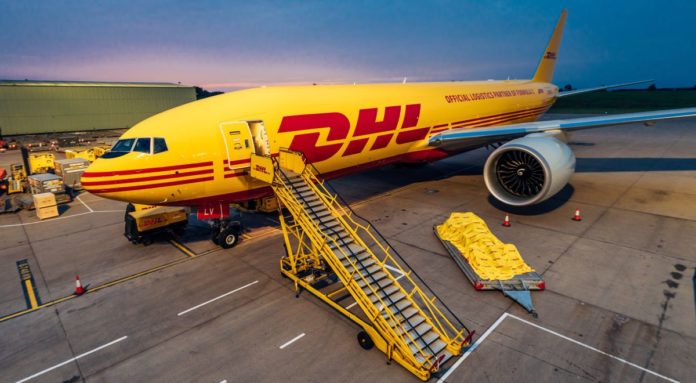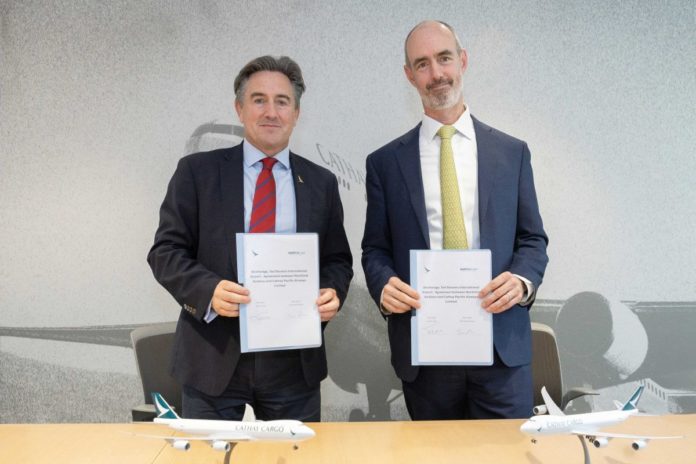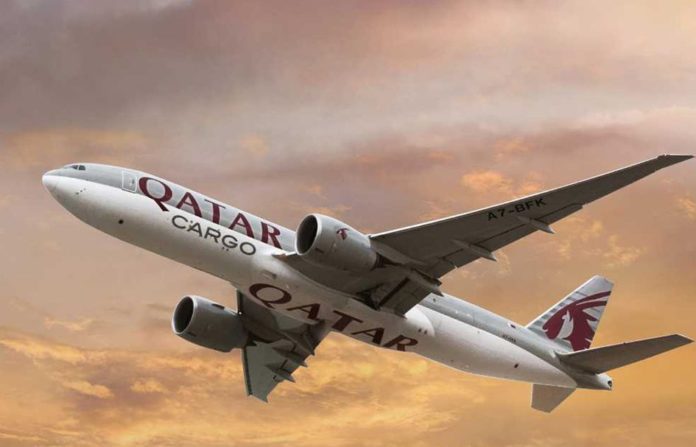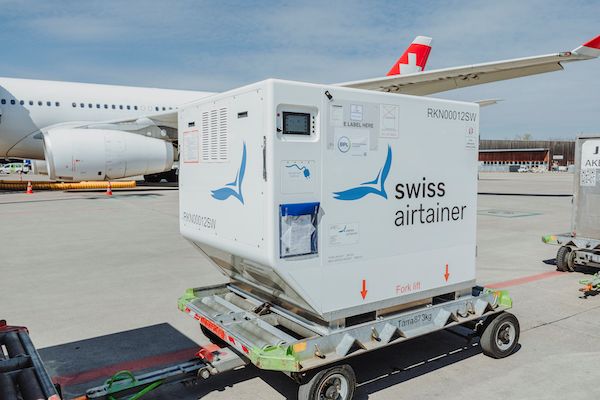Formula 1 and its logistics partner DHL are to Sustainable Aviation Fuel (SAF) for their airfreight movements, they announced at a press conference in Singapore on 20 September.
From March of this year, starting with the Australian Grand Prix, Formula 1 has been working with DHL Global Forwarding’s GoGreen Plus service to use the green fuel, which cuts emissions by around 80% per flight compared to conventional aviation fuel.
Like many other companies and organisations, Formula 1 is committed to reach Net Zero by 2030. So far this year, 20% of cargo flights to races outside Europe have been scheduled to use the GoGreen Plus service with SAF.
Head of DHL motorsports logistics, Paul Fowler, said: “We are committed to using our expertise to support Formula 1 in transporting cars and other equipment around the world in the most efficient way possible. With 40 years of expertise in motorsports logistics, we are focused on identifying ways to cut down greenhouse gas emissions and making motorsport more sustainable with every step we take.”
More broadly, DHL employs multimodal transportation including sea and road freight. This season, for example, it has more than doubled its fleet of biofuel-powered trucks to serve the European leg of the F1 season
It has also switched from thirsty 747 freighter aircraft to more efficient twin-engined Boeing 777Fs reducing greenhouse gas emissions by around 17%.
Formula 1 itself has also rationalized its calendar and create a better flow of races and centralised remote broadcast production at a new Media and Technology Centre at Biggin Hill airport south of London in the UK.
Formula 1’s head of ESG, Ellen Jones, said: “Formula 1 has always been at the forefront of innovation, and our early stage investment in Sustainable Aviation Fuel is a testament to our dedication to deliver on our Net Zero by 2030 commitment. SAF is just the latest step for the business, and underscores how alternative fuels both on and off track can materially reduce carbon emissions. This delivery of our sustainability strategy is only made possible through coordinated actions across our sport.”
The SAF for Formula 1 logistics is purchased and transferred through DHL’s book and claim system which allows for the decoupling of specific environmental attributes from physical products, such as reduced greenhouse gas emissions, and transferring them to another party through a registry and allowing buyers and sellers to participate without direct involvement in the physical supply chain of the fuel. At purchase, buyers “book” a specified quantity of SAF and “claim” emissions reductions towards their sustainability objectives, acquiring environmental benefits without physically possessing the fuel.
DHL’s SAF for Formula 1 is backed by verification from the International Sustainability & Carbon Certification (ISCC which ensures that the fuel is produced in accordance with strict sustainability criteria. The ISCC goes beyond simple emissions reduction to promote transparent, sustainable, and deforestation-free practices throughout the supply chain. Its scope encompasses a wide range of sustainable materials, from agricultural biomass to recycled carbon sources, ensuring a truly holistic approach.
Launched by DHL Global Forwarding in 2022, the GoGreen Plus service uses the book and claim system for sustainable fuels in air and ocean freight.















